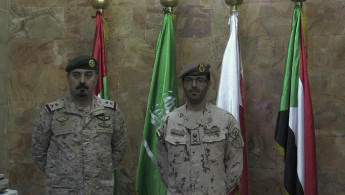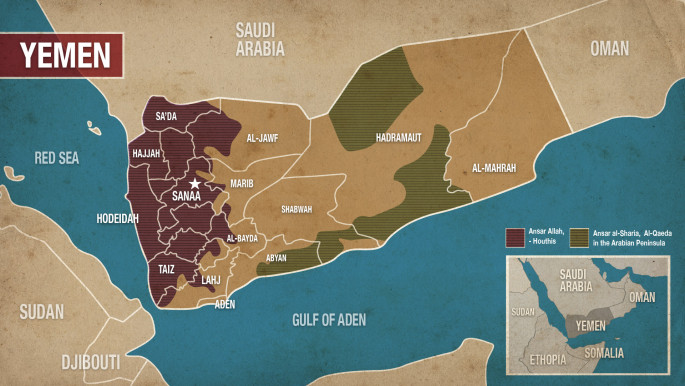UAE and Saudi officials meet to end Aden clashes
Saudi and UAE officials have met to end a standoff in Aden in Yemen's south, as government forces and southern separatists continue to fight for control over the port city.
Southern separatists launched a surprise assault on the UN-recognised government headquarters - based in the south of the country - Sunday, with UAE-backed rebels taking over most of Aden by Wednesday.
The clashes have thrown the anti-Houthi, Gulf-backed coalition into chaos.
Officials from Saudi Arabia - which supports the Aden-based Yemeni government - met with a UAE envoy and other Yemeni officials to discuss the crisis.
"[Emirati officials] met with all concerned parties, stressing the need to abide by the ceasefire... and refocus efforts on the front lines against the Houthis," the UAE's official WAM news agency reported.
Saudi Arabia's Major General Mohammed bin Saeed al-
Mughaidi said fighting in the southern city had started to die down and played down the rift with Riyadh’s ally, the UAE.
"The situation in Aden is stable and all parties have complied completely with the communique issued by the Arab coalition," he assured.
"The kingdom and the United Arab Emirate have a common goal and the same vision and have no ambitions."
Both Riyadh and Abu Dhabi back Yemen's internationally-recognised, Saudi-based President Abd Rabbo Mansour Hadi.
They are also major players in an Arab coalition that provides ground support and air strikes for Yemeni forces fighting Houthi rebels.
Among the Yemeni groups fighting the Sanaa-based Houthis and al-Qaeda are the southern separatists, tribal groups, and pro-Hadi government troops.
But a rift has emerged between the separatists - who support the re-establishment of a southern state - and pro-Hadi forces.
South Yemen was an independent country until it formed a union with the north in 1990.
Hadi has relied heavily on the southern separatist militia in the fight against the Houthis, with the UAE-backed side also engaged in fighting with al-Qaeda around Aden and elsewhere.
The UAE has close ties to separatist Hani bin Breik, a leader in the Southern Transitional Council to which many of the forces now in control of Aden are loyal.
The UAE have also failed to provide military support for Prime Minister Ahmed bin Dagher and other ministers, under siege in the presidential palace in Aden.
At least 38 people have been killed and 222 wounded in Aden during the four days of fighting in Aden.
Clashes had calmed by Wednesday evening, but aid ships were still unable to dock in Aden's port, the UN said.
Yemen faces the world's worst humanitarian crisis with around 8.4 million of its 22.2 million population at risk of famine, according to the UN.






 Follow the Middle East's top stories in English at The New Arab on Google News
Follow the Middle East's top stories in English at The New Arab on Google News
![Israeli forces ordered bombed Gaza's Jabalia, ordering residents to leave [Getty]](/sites/default/files/styles/image_330x185/public/2176418030.jpeg?h=a5f2f23a&itok=_YGZaP1z)

